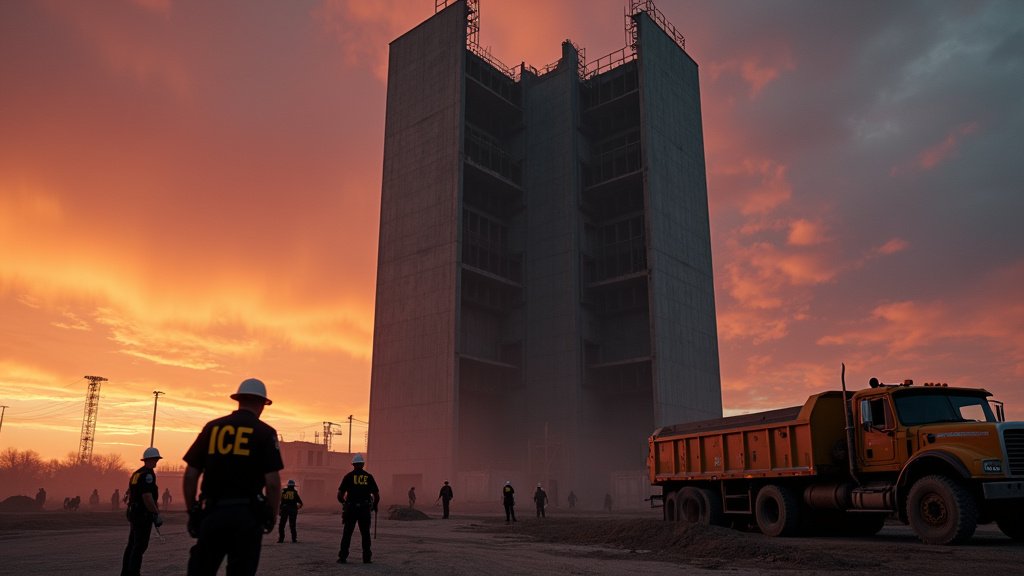Putin Addresses Escalating Iran-Israel Tensions
Russian President Vladimir Putin on June 19, 2025, addressed a critical question regarding the volatile relationship between Iran and Israel during a meeting with international journalists. The query, centered on speculation about a potential attempt by Israel or the United States to assassinate Iranian Supreme Leader Ayatollah Ali Khamenei, was met with a refusal to comment directly by the Russian leader.
Instead of engaging with the specifics of the assassination speculation, President Putin pivoted to advocate strongly for a political resolution to the ongoing Iran-Israel conflict. His remarks underscore Moscow’s stance amidst rapidly intensifying regional hostilities that have drawn global attention.
Context of Heightened Regional Conflict
The backdrop to the journalists’ question and President Putin’s response is a period of severe escalation in tensions between Tehran and Tel Aviv. The conflict, long simmering, has seen a notable increase in overt confrontations and rhetoric from both sides.
Earlier in the week preceding President Putin’s press conference, Israeli Prime Minister Benjamin Netanyahu made significant public statements regarding the conflict. Prime Minister Netanyahu suggested that the ongoing hostilities could potentially lead to regime change in Iran. His remarks highlighted a possible strategic objective beyond immediate military engagements.
Furthermore, Prime Minister Netanyahu confirmed that Israeli attacks had specifically targeted senior military leaders and top nuclear scientists within Iran. These statements acknowledge a deliberate strategy aimed at dismantling key elements of Iran’s military and nuclear programs, raising the stakes significantly in the confrontation.
Human Cost and Casualties
The human toll of the escalating conflict has been substantial. According to data compiled by a US-based Iranian human rights group, Israeli strikes carried out since last Friday have resulted in a significant number of casualties within Iran. The group reported at least 585 deaths during this period. This figure tragically includes 239 civilians, highlighting the devastating impact of the strikes on the civilian population.
These casualty numbers, reported by the human rights organization, provide a grim perspective on the intensity and consequences of the military actions being undertaken. They underscore the urgent need for de-escalation and diplomatic efforts to prevent further loss of life.
US Position and Prior Statements
The United States’ potential role in the conflict, particularly concerning Iranian leadership, has also been a subject of prior discussion. US President Donald Trump had previously made statements touching upon the sensitive issue of Ayatollah Ali Khamenei’s location and the potential for US action.
President Trump stated that the US government possessed information regarding the location of the Iranian Supreme Leader. At the time, he indicated that the US would not act against him “for now,” suggesting a temporary restraint on potential actions. However, President Trump also notably did not rule out the possibility of the United States joining Israel’s attack on Iran in the future.
These earlier statements from the US President add another layer of complexity to the regional dynamics, introducing the potential for direct American military involvement in the escalating confrontation between Israel and Iran.
Geopolitical Implications and Diplomatic Push
The convergence of these factors – the assassination speculation, Israel’s stated objectives targeting leadership and nuclear personnel, the rising civilian casualties, and the ambiguous US position – creates a highly volatile geopolitical environment. The question posed to President Putin reflects the global anxiety surrounding the trajectory of the conflict and the potential for it to expand or involve more drastic actions.
President Putin’s decision to decline comment on the specific assassination query, while immediately calling for a political resolution, signals Russia’s official position. Moscow appears to be positioning itself as a proponent of diplomatic solutions rather than military escalation, at least publicly, amidst the intensifying crisis. This stance aligns with Russia’s broader foreign policy goals in the Middle East, where it seeks to maintain influence and stability, albeit on its own terms.
The call for a “political resolution” implies a preference for negotiation, mediation, or other non-military means to address the root causes and immediate triggers of the conflict. It stands in contrast to the military actions and regime change rhetoric emanating from other capitals.
International Response and Future Outlook
The international community remains deeply concerned about the situation. The potential for miscalculation or unintended escalation is high, particularly with targeted strikes on high-value individuals and the rising civilian death toll.
The statements from Prime Minister Netanyahu regarding regime change and targeting specific individuals within Iran’s leadership and scientific community represent a significant hardening of Israel’s stance. Coupled with the human rights group’s reporting of casualties, it paints a picture of a conflict moving into a more destructive phase.
President Trump’s prior remarks, while not a current commitment, leave open the possibility of direct US military engagement, a prospect that carries immense regional and global implications. Any direct confrontation between the US and Iran could trigger a wider conflict involving multiple state and non-state actors across the Middle East.
President Putin’s call for a political resolution, therefore, can be seen as a reflection of the urgent need for diplomatic off-ramps. Whether such calls will gain traction amidst the current climate of military action and heightened rhetoric remains uncertain.
The focus now turns to whether international diplomatic efforts can be mobilized effectively to prevent further escalation and potentially facilitate dialogue between the warring parties. The current trajectory of the Iran-Israel conflict, marked by targeted strikes and significant casualties, underscores the critical importance of finding a political pathway to de-escalation before the situation spirals further out of control. President Putin’s comments, while avoiding a direct answer on a sensitive hypothetical, clearly signal Russia’s view that the crisis requires a non-military solution.





